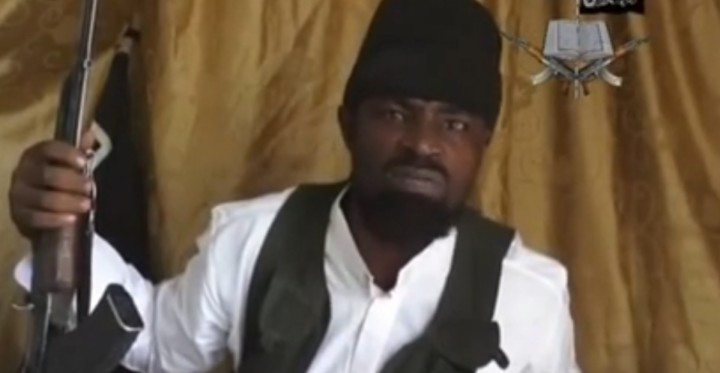Nigeria: If Boko Haram negotiation claims are true they are 'just a tactic to gain time', says intelligence expert

The possibility that terror group Boko Haram has a new leader who is willing to negotiate with the Nigerian government might be a tactic to recover from the ongoing violence and gather enough equipment and personnel to attack again, David Otto, chief executive of UK-based TGS Intelligence Consultants, told IBTimes UK.
It is believed that the group's leader Abubakar Shekau – who replaced Mohammed Yusuf in 2009, after he was killed in Nigerian police custody – has been ousted and Mahamat Daoud is the group's new head. The claims were made by Chad's President Idriss Deby weeks after Shekau failed to appear in the group's latest propaganda videos, triggering speculation regarding his fate. Deby also said that Daoud is willing to negotiate with the Nigerian government.
Neither Boko Haram nor the Nigerian government have confirmed the alleged change in the leadership. According to some analysts, Deby's claim is not reliable as the leader previously made remarks on Boko Haram that did not prove to be true. Earlier in 2015, Deby declared that he knew Shekau's whereabouts. He later backtracked on his claim.
Who are Nigeria's Boko Haram terrorists?
Boko Haram (recently renamed Iswap) fights against Western influence in Nigeria and aims to impose its version of Sharia law on the country. The group declared an Islamic caliphate in Gwoza, along the Cameroon border, in August 2014.
Boko Haram has raided several cities in the north of the country in a bid to take control of more land.
Three states − Adamawa, Borno and Yobe − have been under a state of emergency since May 2013, due to Boko Haram's attacks.
The group has killed at least 2,600 people since the beginning of 2015.
"If it is true that a new amir [leader] exists, it can also be that since Boko Haram has suffered so much casualty for the past couple of months, it may be feeling the heat and is looking for a breathing space to recover and gather enough momentum to fight back the military," Otto said.
"It may simply be a distraction for them to recover, rearm and recruit more militants. Or maybe they have been advised by the Islamic State (Isis) [to which the group pledged alliance] to seek a period of truce and have enough room to launch again."
Otto added that it is very unlikely that any Islamic group associated with IS is willing to negotiate with a government that IS considers to be infidel. "Boko Haram cannot be seen to negotiate with the government of Nigeria or Chad at this stage in time without deep suspicions of the existence of an ulterior motive," he said and added that even if Boko Haram has a new leader, it will be still carrying out deadly attacks in Nigeria and neighbouring countries as part of its insurgency that aims to establish an Islamic caliphate.
"If Shakau does not contradict the recent statement and we agree that he is no more alive, it will, in my opinion, not make any much difference to the modus operandi or level of lethality of Boko Haram operations," he said.
"Whether Shakau is dead, alive or replaced by Mahamat Daoud or anyone else, a change of the amir really makes no difference to the solution to the Boko Haram issues that made the organisation go wild from 2009 and eventually linking up with ISIL(Isis). What is clear is that Boko Haram leadership have no realistic aims or objectives to sit comfortably on the negotiation table with the Nigerian government."
Otto also said that the Nigerian government, which said it is willing to start negotiations with the terrorists, should set up a comprehensive program to assists those who want to leave the terror organisation as well as eradicate those factors, such as corruption, poverty and intolerance, that drive terrorism.
Boko Haram has killed thousands of people since its insurgency became violent in 2009. The Nigerian army announced that a new task force – consisting of 8,700 troops from Nigeria, Niger, Chad, Cameroon and Benin – is ready to step up in the fight against the terrorists.
In a previous interview with IBTimes UK, Nigeria's defence spokesperson Rabe Abubakar said that whether the group has a new leader or not, the countries involved in the regional offensive must focus on restoring stability.
© Copyright IBTimes 2025. All rights reserved.




















